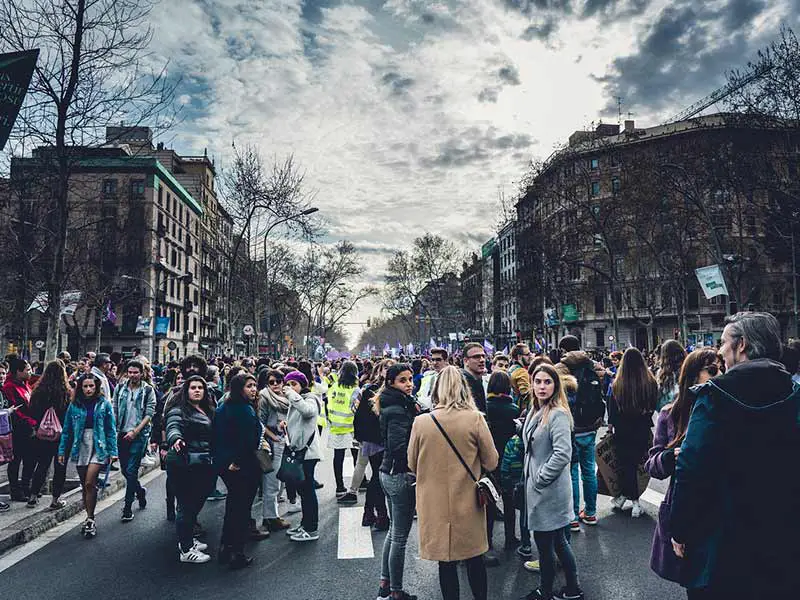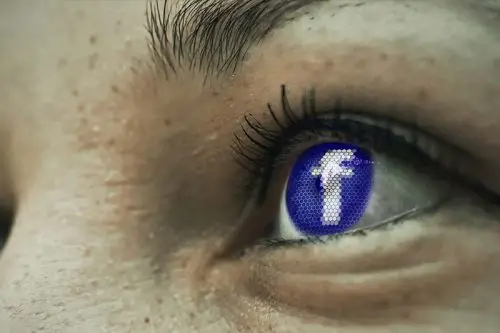Taylor Swift’s Controversial Women’s March: Taylor Swift might not have made it to the Women’s March — but she did tweet about it. While hordes of women descended on Washington in pink knit hats and righteous indignation, the day after the inauguration of President Donald Trump in the largest single-day protest in U.S. history, self-proclaimed feminist, Swift, was nowhere to be found.
Taylor’s Swift’s women’s march, it appeared, was happening on twitter.

Inspiring your journey, one story at a time. #LifeFalcon.
So much love, pride, and respect for those who marched. I’m proud to be a woman today, and every day. #WomensMarch — Taylor Swift (@taylorswift13
The backlash was swift and scathing. One fan said.
‘As a fan of yours, this is some bulls**t. You do not get to pick and choose when feminism benefits you,’
Another fan replied…
I love you, but I’m disappointed that you didn’t use your platform to voice your support earlier. Your voice is powerful.’
Celebrities who exercise their political muscles will always have to tread a fine line between advocacy and blatant opportunism.
As a collective, they’re capable of provoking a sort of righteous fury: once a shiny black S.U.V. has deposited you directly at the foot of a stairway leading to a private jet, you are suddenly and permanently beyond any sort of compassion.
But we recognize that our resistance finds strength in numbers and that the powerful can lend their big voices and bigger platforms to vital issues.
When Taylor Swift publicly announced she was leaving country music for pop stardom, in anticipation of her 2014 release 1989, she had to navigate this tricky terrain carefully.
Her transformation from southern sweetheart to pop starlet was remarkably successful; she definitely leveled up, becoming one of the biggest female pop stars in the world, and managed to hold on to much of her original fan base, as well as expand her appeal. How did she make it happen?
Table of Content
She Wears High Heels, I Wear Sneakers
It must be said that Taylor Swift has always known how to tell a relatable story. It’s part of what made her such a hugely successful country music sensation because, within American country music, stardom has always been reliant on a strong sense of truth-telling; performances are all about autobiography and intimate confession.
She’s always had to know how to create the illusion of authenticity and she’s not entirely to be blamed for that; audiences don’t want female distance, they want female openness and accessibility.
Her fans want to feel close to her, and Taylor learned early on how to capitalize on that.
Taylor Swift has always employed an incredibly savvy image maintenance strategy.
She’s known for her skill at persona creation, everything she does is rehearsed and meticulous, and if there were a PR Olympics, her marketing team would take home gold.
“Am I shooting from the hip?”
She asked GQ in 2015, after hearing that an unnamed “someone” had described her as calculating.
“Would any of this have happened if I was? In that sense, I do think about things before they happen. But here was someone taking a positive thing — the fact that I think about things and that I care about my work — and trying to make that into an insinuation about my personal life. Highly offensive. You can be accidentally successful for three or four years. Accidents happen. But careers take hard work.”
It’s true: nobody ascends to the level of fame that Taylor Swift possesses, much less stays there for as long as she has, without all the hard, ugly work.
It just doesn’t happen unless you’re ready and willing to be unrestrainedly obsessive about it. But there’s no place for this ambitious business woman in the All American Sweetheart persona she’s built with her music.
Big Reputation, Big Reputation
The feminism she has started to exemplify, particularly in recent years and months, is no different – it’s well-done, pre-packaged, but then again, why wouldn’t it be?
As Rosalind Gill notes, “feminism has a new luminosity in popular culture.”
That is to say, it’s popular. Swift is among those artists who have made feminist practice a big part of their public image on social media platforms like Twitter and Instagram: Swift’s social media support of the women’s march is her using popular feminism to rebrand the same way she’s been doing for years.
It’s an extension of her branded relationship with female friendships and #GirlPower.
Speaking to the pressure placed on Swift to discuss political causes, media scholar Elizabeth Affuso points to Taylor Swift’s social media support for the women’s march, but notes that Swift not actually attending the march reinforced the contradictory nature of such statements with the apolitical brand she had developed.
This particular controversy extends beyond Taylor’s Swift’s women’s march and into a larger conversation about her relationship with feminism, and the role that media and celebrity play in politics.
At a time when popular expressions of feminism are more visible than ever before, something altogether unexpected has happened. Elements of feminism have certainly been absorbed into our political and conventional lives.
But they’ve been converted into a much more individualistic conversation, and then these ‘feminist gestures’, not more than virtue signaling (the action or practice of publicly expressing opinions or sentiments that are supposed to demonstrate one’s good character or the moral correctness, the ‘rightness’ of your stance on an issue), are distributed en masse in media and popular culture as a kind of substitute for feminism itself.
Swift is the brand ambassador for this PR-friendly marketplace feminism, and its fragile agreements, in which choices and statements that are explicitly feminist must be placed in context alongside her carefully controlled persona.
This branded feminism is an invaluable space for celebrity figures like Taylor to discuss issues of gender inequality within their own careers that cannot, at any length, be unlinked from the capitalist systems in which that gender inequality is reinforced.
We can’t underestimate the importance of the visibility of popular feminism, but it often seems to start and end there, as though seeing or purchasing feminism were equivalent to changing actual patriarchal structures and bringing about actual material improvement in the lives of women everywhere.
Marketplace feminism—the process that celebrities, and corporations, and other commercial bodies use the language of freedom in the service of capital—isn’t a Taylor Swift’s women’s march problem, or even a Taylor Swift problem, in so far as isn’t a Beyonce or Lena Dunham or Tina Fey problem.
It’s what would always happen in a society where celebrities have the most cultural capital (that is, social assets that allow upwards movement in a hierarchical society). They’re a value power resource precisely because they can be used to manipulate audiences into connecting with them on an emotional or psychological level.
These forms of feminist celebrity go a long way towards shaping the kinds of feminism that come to publicly circulate and that, to differing degrees, come to receive cultural legitimacy, making the kind of conversation that happens through this channel both critically and politically important, because of how visible it is.
End Game
Taylor inspires a unique level of hatred because she’s so very good at that.
The cleverest celebrities know the best way to win love is to convince would-be fans that they’re friends, confidantes.
As Vox’s Constance Grady put it:
“Swift’s celebrity image has been caught a tug-of-war between intimacy and control, one characterized by two distinct identities: Taylor Swift, nerdy teen and girl next door, who just happens to naturally be able to give voice to your deepest feelings in her songs; and Taylor Swift, micromanaging CEO of a billion-dollar business in whose marquee product is her own public image.”
Both sides are part of her success, but they can’t be united with each other.
And when they clash? Her persona all but collapses.
Perhaps her high gloss mask is finally slipping. Swift’s place on the cover of TIME’s Person of the Year issue was highly contested by those who argued that her general silence is far, far louder than her choice to break that silence by taking her sexual assault case with Mueller to trial.
Indeed, most of the criticism borne by Swift has been for the lack of intersectionality in her feminism, whether through her defensive response to Nicki Minaj’s critique of award shows for failing to represent black artists (Griffiths, 2017) or in her threatening of legal action against Meghan Herning after the PopFront writer (Herning, 2017) publicly called on the artist to condemn white supremacy within her fanbase (Grady, 2017).
She’s also drawn not insignificant criticism for sitting quietly on the sidelines during the 2016 Presidential Election while fellow pop stars like Katy Perry and Lady Gaga campaigned for Hillary Clinton.
After Swift reemerged from her hiatus to promote the release of her album reputation in 2017, The Guardian (2017) published an unsigned editorial arguing Swift’s silence reinforces President Trump’s values, pointing out the inconsistency between her commitment to feminism and her apolitical star image.
Swift’s celebrity has always been all about these types of half measures, wherein small acts that reinforce her feminism ultimately fail to exhibit a turnabout of her larger celebrity brand toward more beneficial feminist causes.
As Dayna Evans at the Gawker put it:
“Swift isn’t here to help women — she’s here to make bank.”



















